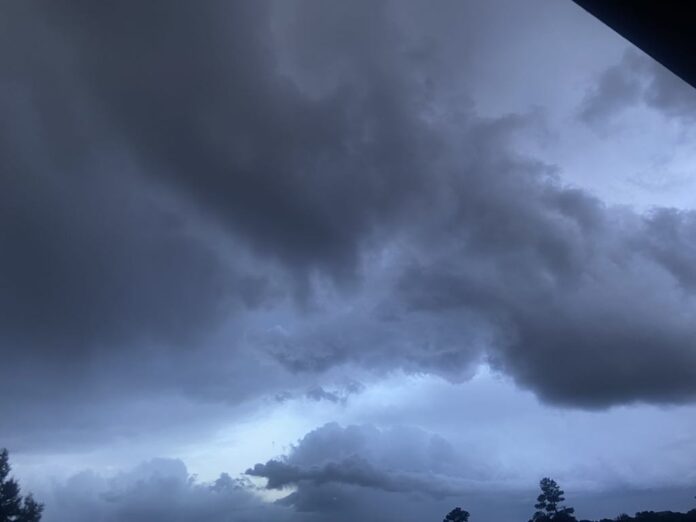The Salt River Project, which delivers water and electricity to central Arizona, has formed a partnership with the White Mountain Apache Tribe to research the feasibility of ground-based cloud seeding in the White Mountains in eastern Arizona.
SRP partnered with the tribe to do initial research of eastern Arizona, where the utility’s watersheds are located. The $140,000 research, which is wrapping up, has been mostly focused on computer models and weather patterns. The research was funded by SRP, the Arizona Department of Water Resources, and the cities of Phoenix and Tempe.
So far, SRP is in the early stages of researching cloud seeding in the White Mountains and for now, researchers are only looking at a ground-based cloud seeding program to produce more snow.
SRP’s water measurement lead, James Walter, said Arizona has a history of cloud seeding research but has never researched it in the White Mountains before.
“This is kind of the hole, a gap, but yet geographically speaking, it looks like the most promising area for cloud seeding. The past winter storms that we analyzed, 80 percent of them had conditions that were favorable for cloud seeding,” Walter said.
Cloud seeding technology, which has been around for seven decades, gets clouds to drop more rain or snow than they would otherwise. It comprises a multitude of techniques, but the glaciogenic technique, which SRP is researching, sends silver iodide into a cloud to freeze the supercooled liquid suspended in the cloud.
Walter said the research indicates the White Mountains, unlike the rest of the Mogollon Rim, could be seeded with ground-based ice nucleus generators, which are far more cost efficient than aerial seeding, which requires an airplane carrying special flares.
Under the guidelines of the Clean Water Act by the Environmental Protection Agency (EPA), silver iodide is considered a hazardous substance, a priority pollutant, and a toxic pollutant.
Because cloud seeding activities release silver iodide to the atmosphere over specific areas, and because the total amount of released silver iodide can be achieved in some cases higher annual values to 3 metric tons (Eisler, 1996), the Office of Environment, Health and Safety and University of California Berkeley rates AgI as a Class C, non-soluble, inorganic, hazardous chemical that pollutes water and soil (WHO, 1977).

